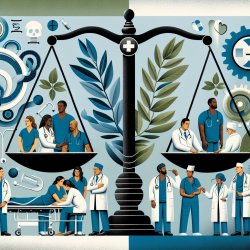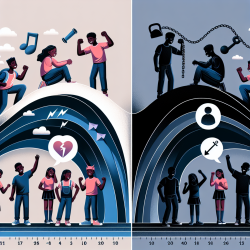Healthcare practitioners face the unique challenge of providing care in environments affected by political and social conflicts. The concept of medical neutrality aims to create a depoliticized space where healthcare is delivered impartially, regardless of external political pressures. However, recent research conducted in a Jerusalem emergency department (ED) highlights the complexities and limitations of this approach, especially in conflict zones.
The Ethos of Medical Neutrality
Medical neutrality is rooted in the idea that medical care should be free from political influence. It strives to ensure that all patients receive equal treatment, shielding healthcare providers from political demands. This concept is particularly relevant in regions affected by ongoing conflicts, such as the Israeli-Palestinian context, where healthcare professionals must navigate complex social and political landscapes.
The research conducted through interviews with ED staff in Jerusalem reveals that while many practitioners endorse medical neutrality as a humanitarian ethic, they also recognize its limitations. The depoliticized space created by medical neutrality often overlooks the structural determinants of health that arise from political conflicts.
The Role of Structural Competency
The study suggests that training healthcare personnel in structural competency can bridge the gap left by medical neutrality. Structural competency involves understanding how social, economic, and political structures impact health outcomes. By recognizing these factors, practitioners can better address health disparities and advocate for systemic changes that promote health equity.
- Cultural Competency: Understanding cultural differences is crucial for effective patient care. However, relying solely on cultural explanations can mask underlying political and structural issues.
- Structural Determinants: Factors such as poverty, access to healthcare services, and language barriers are influenced by broader political contexts. Recognizing these determinants allows practitioners to provide more comprehensive care.
Practical Implications for Healthcare Practitioners
The findings from the Jerusalem ED study offer valuable insights for practitioners working in similar environments:
- Acknowledge Limitations: Understand that medical neutrality has its limits and be open to discussing how political conflicts impact patient health.
- Pursue Further Training: Engage in training programs focused on structural competency to enhance your ability to identify and address health disparities.
- Advocate for Change: Use your position to advocate for policy changes that address structural determinants of health and promote equity.
The research underscores the importance of moving beyond depoliticized approaches to healthcare delivery. By embracing structural competency, practitioners can play a pivotal role in addressing health inequities and improving patient outcomes in conflict-affected areas.
Neutrality, conflict, and structural determinants of health in a Jerusalem emergency department










